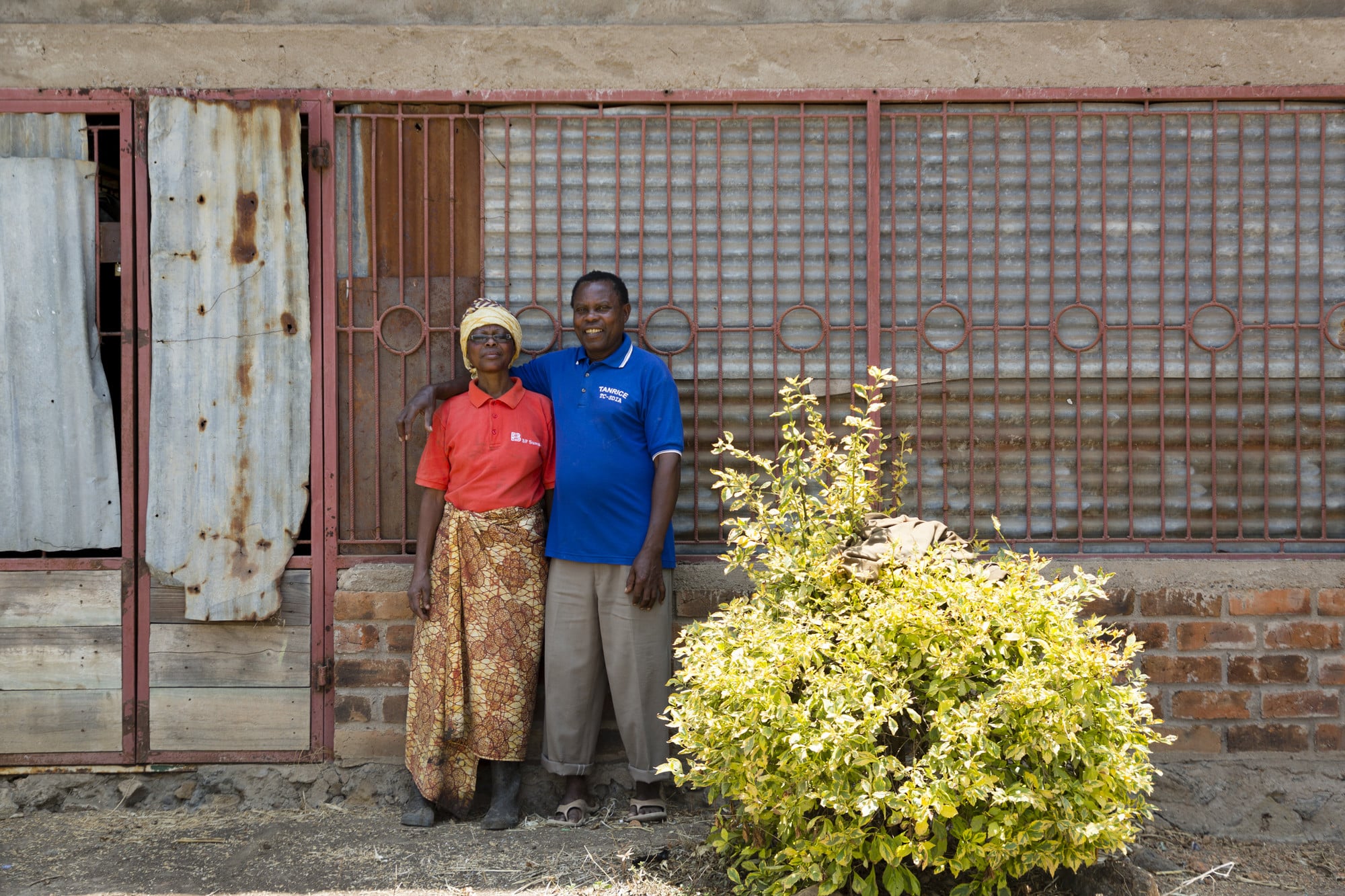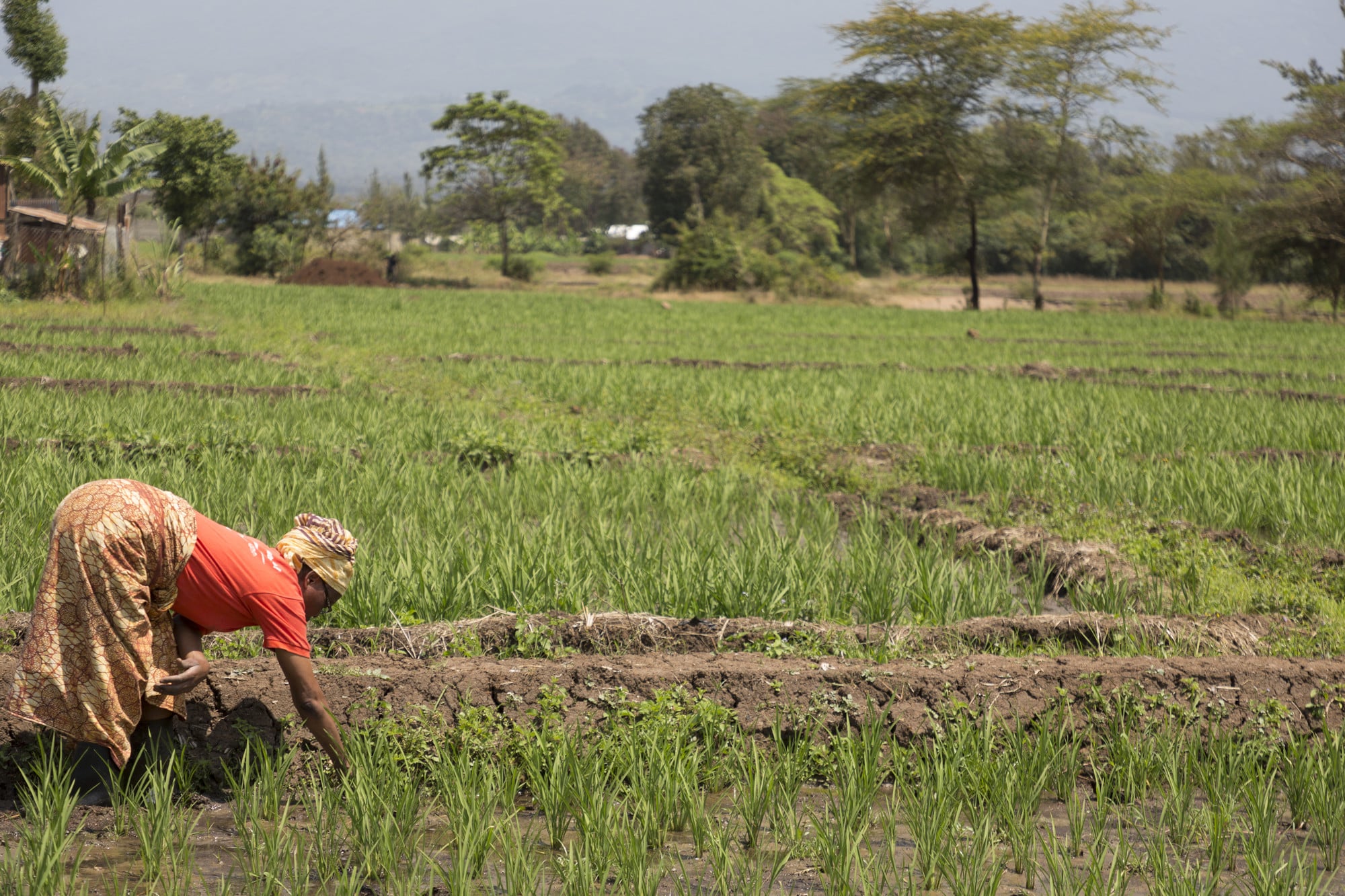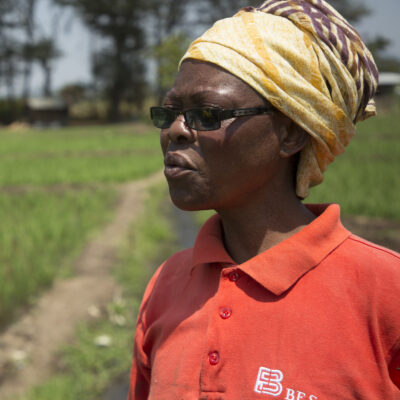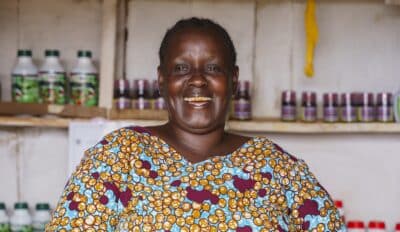Stories
Tanzania
9 February 2018
Farm Africa helps farmers kiss goodbye to poverty

Photo: Farm Africa / Jon Spaull
This Valentine’s Day, we want to share some love! We want to bring you the story of Vincent and Hildegarda, one of many inspiring husband-and-wife teams that Farm Africa works with.
A few years back, Vincent and Hildegarda, farmers who live near Arusha in northern Tanzania, weren’t feeling too rosy about the future.
The couple’s limited agricultural knowledge and their poor links to markets meant that they were struggling to make ends meet and feed their three children.

Photo: Farm Africa / Jon Spaull
Their luck changed when they started receiving support from local agricultural extension workers, who provided training in how to sustainably intensify the production of rice on their farm, allowing them to significantly boost their yields.
“There is now a huge difference in our yields and lifestyle”, said Vincent. “I used to get five to ten bags of paddy per acre and now I get 36 to 40 bags per acre.”
With support from UK aid, Farm Africa worked in partnership with the NGO Rikolto to help the couple’s community aggregate their crops and sell them in bulk for higher prices, so that they can earn more from their agricultural efforts.

Photo: Farm Africa / Jon Spaull
The couple used to store their harvest in their family home. Now, the crops are carefully dried, and safely stored in a moisture-controlled warehouse along with other local farmers’ crops so that large-scale buyers can make bulk purchases.
Farm Africa helped the farmers’ cooperative identify high-value buyers and the best time to sell.
We encouraged the cooperative to store the crops for a few months after harvest to wait for market prices to rise before arranging a sale – something they’re happy to do now they know the crops are not going to rot or be destroyed by pests while in storage.
“When we stored crops at home we had pests like rats, but not in the warehouse. The rats were a big problem. We used pesticide to control them, but used to lose about 5% of the harvest”, added Hildegarda.
"Previously, we didn't eat much. Now we have enough to eat. Now that we have more money, we can buy a variety of foods: I can buy cooking oil, salt and meat."

Hildegarda Vincent
Northern Tanzania
The couple’s increased income has not only benefitted their lives, but also their children’s. Vincent and Hildegarda used to struggle to pay their children’s school fees. Now, they no longer worry about not being able to provide their children with a formal education.
“It was difficult for the children to do their homework because we had no light. Now we have solar power”, said Vincent.
About the project
Tanzania and Uganda typically produce a surplus of staple crops every year, while Kenya only grows enough maize to feed itself one year in every five. Smallholder farmers in Tanzania and Uganda could reap huge benefits from selling their crops to regional markets like Kenya. We’re helping rice, maize and beans farmers reduce post-harvest losses and build their links to markets.




